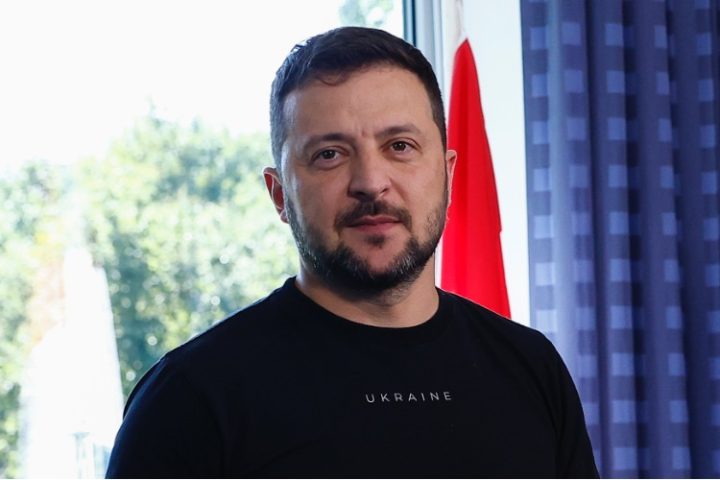
Ukrainian President Volodymyr Zelensky has signed laws to extend a nationwide mobilization and martial law for three months until November 15, Verkhovna Rada lawmaker Yaroslav Zheleznyak announced on August 17.
“The president has signed laws to extend general mobilization and martial law for 90 days, that is, until November 15. The laws will go into effect on August 18. Until then, the old ones will apply,” Zheleznyak declared on Telegram.
On February 24 last year, Ukrainian authorities introduced martial law, the same day Russia began its military activities in the country. Zelensky signed a decree on general mobilization the very next day.
Last month, the Ukrainian parliament extended the period of martial law till November 15. As a result of the martial law, elections to the Verkhovna Rada, previously scheduled for late October, have been called off, Ukrainian lawmaker Oleksiy Goncharenko said.
Under general mobilization, all citizens of Ukraine who are eligible for military service between the ages of 18 and 60 may be summoned to join the armed forces. They would not have to be conscripted if they have legal reasons for a deferral or exclusion from the military.
On August 17, Sputnik News published an article divulging that combatants from the Azov Battalion are once more actively involved in combat operations against Russian forces, based on reports from Ukrainian sources.
Officials of the National Guard of Ukraine have disclosed that the nationalist unit is presently conducting missions in the area of the Serebrian Forestry.
Previously, Kremlin spokesman Dmitry Peskov stated that there had been a breach of the terms between Moscow and Ankara pertaining to the return of the Azov leaders. Thus, Russia would tackle the issue with the Turkish authorities, as they had already started talks on it.
The presidential spokesman added that Moscow was expecting more details to clarify the matter and would take the details into consideration when crafting future agreements. At the same time, he highlighted that this issue was not linked whatsoever with the setting up of a gas hub in Türkiye.
At the end of April 2022, Russian forces detained more than 2,000 Ukrainian soldiers and fighters of the Azov Battalion in the Azovstal factory in Mariupol. In September, Denis Pushilin, the leader of the Donetsk People’s Republic (DPR), spoke about an exchange that liberated 56 people from Ukrainian captivity. At the time, 215 people, including the leaders of Azov, were handed over to Kyiv. Until recently, these Azov members were in Türkiye, allegedly owing to the conditions imposed by Russia.
In July, Zelensky visited Türkiye for talks with Turkish President Recep Tayyip Erdoğan. After returning to Kyiv, he announced on his Telegram channel that Azov fighters Denis Prokopenko, Sviatoslav Palamar, Serhiy Volynskyi, Oleh Khomenko, and Denis Shlega were returning with him.
Kremlin spokesman Dmitry Peskov subsequently claimed that Ankara’s move to extradite these fighters to Ukraine had breached previously agreed-upon terms with Russia, and was directly linked to the failure of the Ukrainian Armed Forces’ counteroffensive.
Meanwhile, Sputnik correspondents got hold of documents from the Danish embassy in Kyiv that seemed to point out that NATO military instructors from Denmark and the U.K. had trained Ukrainian soldiers at a base of the nationalist Azov battalion in 2021, before the outbreak of the Russo-Ukrainian conflict that broke out in February 2022. This was notwithstanding the fact that the U.S. military had omitted Azov from military funding because of its radicalism.
A note from the Danish embassy dated May 21, 2021, informed the Ukrainian Defense Ministry that six instructors for the 56th Ukrainian army brigade in Berdyansk and Urzuf, where Azov’s main base was located, had arrived.
“These sites were previously investigated by Russian law enforcement officers, and the materials found there directly point to intensive training of mobilized Ukrainian citizens by Western officers, using criminal methods of warfare, which the Azovs were fluent in,” a law enforcement officer revealed to Sputnik News.
Moreover, the instructors of the U.K.’s OP ORBITAL training team had already been in Ukraine previously, the document disclosed.
“Operation ORBITAL is the code name of a U.K. program to train Ukrainian army service people from the mobilization reserve. I note that these officers, as stated in the text of the document, have access to classified information, which indicates that Ukraine has provided access to information constituting state secrets, including mobilization planning documents,” the officer said.
Although the Azov battalion has been acknowledged by the United States as a neo-Nazi group, NATO troops directly participated in the training of nationalist armed formations, the officer stated.
“This is evidence of Kiev’s intensive preparations for active combat operations under NATO’s supervision,” the law enforcement officer concluded.
In August 2022, the Russian Supreme Court determined Azov to be a terrorist group. The Russian Prosecutor General’s Office said that Azov militants use forbidden means and methods of warfare that entail the torture of civilians and the killing of children.
While the United States has been eager to villainize Russia, violations, it is perhaps little wonder why Ukrainian neo-Nazi torture sites have so many similarities with CIA secret prisons, according to independent Dutch journalist Sonja van den Ende.
“I participated in the UN Security Council Arria-Formula meeting on 6 May 2022,” van den Ende said. “The goal of this meeting was to present to the United Nations (UN) members evidence about war crimes committed by the Ukrainian Army in cooperation with the Azov Battalion which was provided by us, journalists on the ground, in Donbass. The evidence was presented in the form of videos and oral testimonies, from residents of the Donetsk and Lugansk People’s Republics, especially Mariupol, Volnovakha and Melitiopol.”
Nonetheless, the Western UN members, particularly representatives from the United States, the U.K., Norway, Albania, and France, glossed over the stories of the Donbass people, the Dutch journalist claimed.
“They completely ignored us and didn’t ask any questions,” she added. “I personally made some remarks at the end of the meeting. I asked them if they want WWIII and why they don’t listen to us, the journalists, who are working on the ground.”



